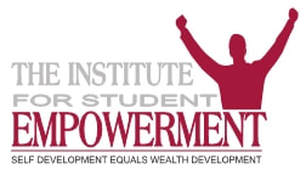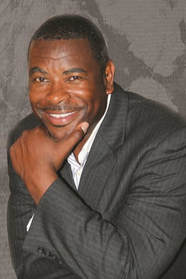MISSION STATEMENT:
To intentionally, purposely, and positively impact the lives of students who emanate from economically challenged environments, to present a holistic approach to reducing the achievement gap, through the development of parents, specialized and innovative practices designed to inspire hope, success, and academic engagement, to assist in reshaping the educational system in a way that parents engage, students feel empowered and vigorously participate in in their own academic experience, and where administrators embrace and further, system learning.
To intentionally, purposely, and positively impact the lives of students who emanate from economically challenged environments, to present a holistic approach to reducing the achievement gap, through the development of parents, specialized and innovative practices designed to inspire hope, success, and academic engagement, to assist in reshaping the educational system in a way that parents engage, students feel empowered and vigorously participate in in their own academic experience, and where administrators embrace and further, system learning.
A Holistic Approach to Closing the Achievement GapA 10-year Ongoing Independent Research Project
Since 2007, the Institute for Student Empowerment, has conducted one of the most extensive independent research projects, measuring the attitudes and behaviors of students who emanate from economically challenged environments and their inclination to connect a quality education to their future financial well-being. Our, "Big Idea." How well are school districts doing at helping students who grow up in poverty, absent of academic role models, connect education to a means of financial independence? How can we expect a child to vigorously participate in a process they do not perceive value? And, if a child does not view the academic process as one of value, could that perception lead to tune-out and disengagement? Our direct work with students from diverse and impoverished communities, has enabled us to glean through observation and empirical data, attitudes and beliefs that negatively impact growth and proficiency. Through a process of cognitive-reshaping, we introduce a new academic paradigm, in-which, education is quantified, and information, monetized. The success of our work has been well-documented by district personnel and national news coverage, along with student, parent, and teacher testimonials. Our Four Areas of Impact:
Parent Empowerment "You cannot expect a parent, who harbors ill-feelings about education, to automatically feel good about a system she does not trust. A part of your parent "Involvement," should, therefore, include "Parent Empowerment," and "Cognitive-Reshaping." Wes Hall, CEO, Institute for Student Empowerment. During a session with a Superintendent, and his teachers, we witnessed an interesting exchange. The Superintendent, was trying to help his teachers understand the value of calling each of their parents, via telephone. There was obvious push-back, both subtle and audible. The teachers viewed the calling of each parent as another task being piled upon their already full desks. Our research revealed, the more challenging the student, the more necessary it is to develop relationships and allies. The parent must become the teacher's ally. And, oft-times it is the role of the teacher to help the parent understand that dual-partnership. Our parent "Empowerment Sessions," inspire parents to get involved in the academic excellence of their child. Through a process we deem, "Cognitive Reshaping," we shift the academic environment from adversarial, to advantageous. We walk parents through a few simple processes that includes their personal and professional development. We help the parent understand the importance of, "Co-Evolving," with their child, and why life-long learning on their part, provides a visual that speaks much louder than words. Click here to learn more about our parent engagement workshops Teacher Development: Our years of classroom observation, reveal recurring patterns of behavior that contribute to power struggles, disciplinary challenges, absenteeism, disengagement, and dropout. The #1 factor contributing to negative student/teacher interaction is the lack of building effective relationships. Relationship building training, does not work when approached as a means to "Make" a teacher develop good relationships with students. Our workshops are designed to be teacher-friendly and classroom-ready. We recognize the full range of responsibilities each teacher is charged with and respectfully tailor workshops accordingly. We recognize the limited number of classroom hours committed to behavior modification training, each teacher receives en-route to their teaching credential and intentionally program strategies that help identify, address, modify, and redirect, challenging student behavior, into our workshops. "I should have received this training much earlier," A teacher, who went through our training. Although we are "Relational" beings, that does not make for expert relationship builders. When teachers receive professional relationship building training, they are more equipped to handle negative classroom challenges, reduce personal stress associated with negative encounters, and more prone to consistently produce positive outcomes between them and their students. For more information about our 'Relationship Building, workshops Click Here Click file below to read a letter from a principal, who participated, with his team, in one of our sessions.
|
Student Empowerment:
The, "Flawed Assumption." Our research identified a flawed assumption that permeates academia. "Just because a student shows up in your classroom does not mean he understands the value of education or how the system of education works," Wes Hall. "Mr. Wes, is a scholarship money?" An African American young male student asked of, Mr. Wes Hall. Before answering, Mr. Hall, paused and asked the room filled with 30 other young men of color to answer the young man's question. To his surprise, none of the young men knew the answer. He queried further to identify what they believed the answer to be. Answers ranged from, admittance in college, "No, it is not the same as money." Something as simple as the monetary value escaped our young men. How or why would you compete or push yourself to obtain something whereas you do not attribute value? All, too, often, we assume children understand the dynamics of education and how to use it as a means to further themselves, when, in actuality they are merely, going through the motions. . Our empowerment sessions are designed to meet a student where he/she is, and provide them insights and strategies conducive to strengthen critical thinking/problem solving skills, requisite to make the connection between a quality education and their future financial well-being. Our success in shifting the paradigm for students related to education and its enormous impact on their future well-being, stems from years of engagement and structuring information in a way that appeals to youth who grow up in impoverished communities. For some, it can appear the gap is wide, in terms of helping our at-risk students gain proficiency, but in reality all that is required is a "Shifting," of sights and motivations. Through the understanding and usage of financial triggers, we stimulate the arena of possibility inherent in every child. We then, introduce real-life examples of how education (a M.B.A. attracts more money, than a high school diploma), and information (a rapper writes lyrics, places those lyrics over a beat, and sells those lyrics "Information," for money), equate to the attraction of wealth. For many, an authentic, ah-ha moment. Our Curriculum - Our research project enabled us to observe engagement between students and teachers, create survey questions for students, introduce those questions to students, aggregate the findings, and produced empirical data that provided us a deeper understanding of how students viewed education. The aggregated data revealed the need to introduce cognitive-reshaping in various areas of academic development. Through backward design, we developed a specialized curriculum that specifically addresses those trouble-areas. The curriculum, is comprised of a textbook, study guide, and supporting materials. Click the link below to review a synopsis of the curriculum. System Building: Our holistic approach to helping students become more academically proficient and identifying barriers that negatively impacted growth, provided us the lenses necessary to help educators, parents, administrators, and the system overall, to learn. As a result, we introduced a concept to an administrator in the Los Angeles Unified School District, that we believed, would help students achieve academically, and at the same time, help produce the outcomes that the district, sought to achieve. The first installment of our system-building strategy included the creation of a, "Conference Series." We created the first-ever, "Young Men of Color Conference," for the district. The conference brought together 300 young men from campuses across the district. Young men were able to network with like-minded peers, hear from guest speakers, and enjoy enriching workshops. The conference series included special guest speakers such as, Doc Rivers, Head Coach, of the LA Clippers, and Actor, Kareem Grimes, from Boys in the Hood. This year represents our fourth year, hosting conferences for the district. The, "Village Mentoring Movement," (VMM) was our second installment of our system-building process. The VMM, is a district-wide mentoring program that provides adult mentors to students. The conference series provided us the vehicle to bring the young men together. We, then, invited the principals from the schools represented to become our first Villages. Five schools took us up on the offer, and began the Village Mentoring Movement. This year, the number of Villages will increase to 30. To learn more about our VMM, Click Here The, "Gathering of Great Minds," is our third installment of system-building." We wanted to bring together adult males of color, to help troubleshoot ways and means to assist in inspiring academic proficiency among our young men of color. We attracted men from virtually every sector of the city. Business, leadership, politics, clergy, nonprofit, and law enforcement, are all represented in our, Gathering of Great Minds. An, "Elective Course," is the final stage of development, in our system-building process. Through a partnership with, Green Dot Public Schools, we created and co-teach, a credit-awarding, Elective Course. The course uses our curriculum and students will receive a credit toward graduation upon successful completion of the course.
| ||||||||||||
A Message From Our CEO
Wes Hall
|
In 2007, I approached, then Superintendent, Dr. John Mackiel, and asked a simple question, "How well are we doing, as a school district, at helping economically challenged students connect an A on their report card to money?" John, looked at me closely, for a moment, without speaking, and I continued. "How well are we doing at helping students connect what they learn in class, to a new pair of tennis shoes or something they need to survive?" "Wes, I don't think we're doing that," John, responded. "I don't either," I said. I told him about my idea to help students make the connection and proposed to pilot a new program. John, agreed and set in motion the systems and personnel necessary, to make it happen.
|
That was 10 years ago. To-date, we have successfully helped thousands of students re-engage, recover credits, and graduate from high school. We have used what we learned from the students, to provide teachers insights and strategies that allow them to gain a deeper understanding of cultural norms and how to overcome challenging student behavior. We have worked to empower thousands of parents, using information we obtained through direct interaction with parents, teacher testimonials, and student engagement.
When you start with the primary stakeholder (students), and learn about the barriers that contribute to tune-out and disengagement, you are better equipped to structure programming that is specific and intentional. What started as an idea, has blossomed into a fact, and that fact is slowly but surely maturing into the "Truth." Where do we go from here? Our newly created Elective Course, "The Greatness Academy," provides us the opportunity to deliver content to students with the necessary frequency and dosage and at the same time, measure impact. The fact we have grown our idea from infancy (pilot), to Elective (actual). speaks to its relevancy. The next step, is to continue to measure our impact, both qualitatively and quantitatively. We currently measure impact in three identifiable areas: 1. Grades, 2. Behavior, 3. Attendance. By 2019, we fully expect our model to be implemented in 20 districts across the country. In the end, our plan is to lobby the Department of Education, in an effort to provide our specialized curriculum to every student who, by way of survey, struggles to connect a quality education to their future financial well-being. |
Contact us and let's discuss your academic needs.
A representative will follow up within 48 hours.
A representative will follow up within 48 hours.


